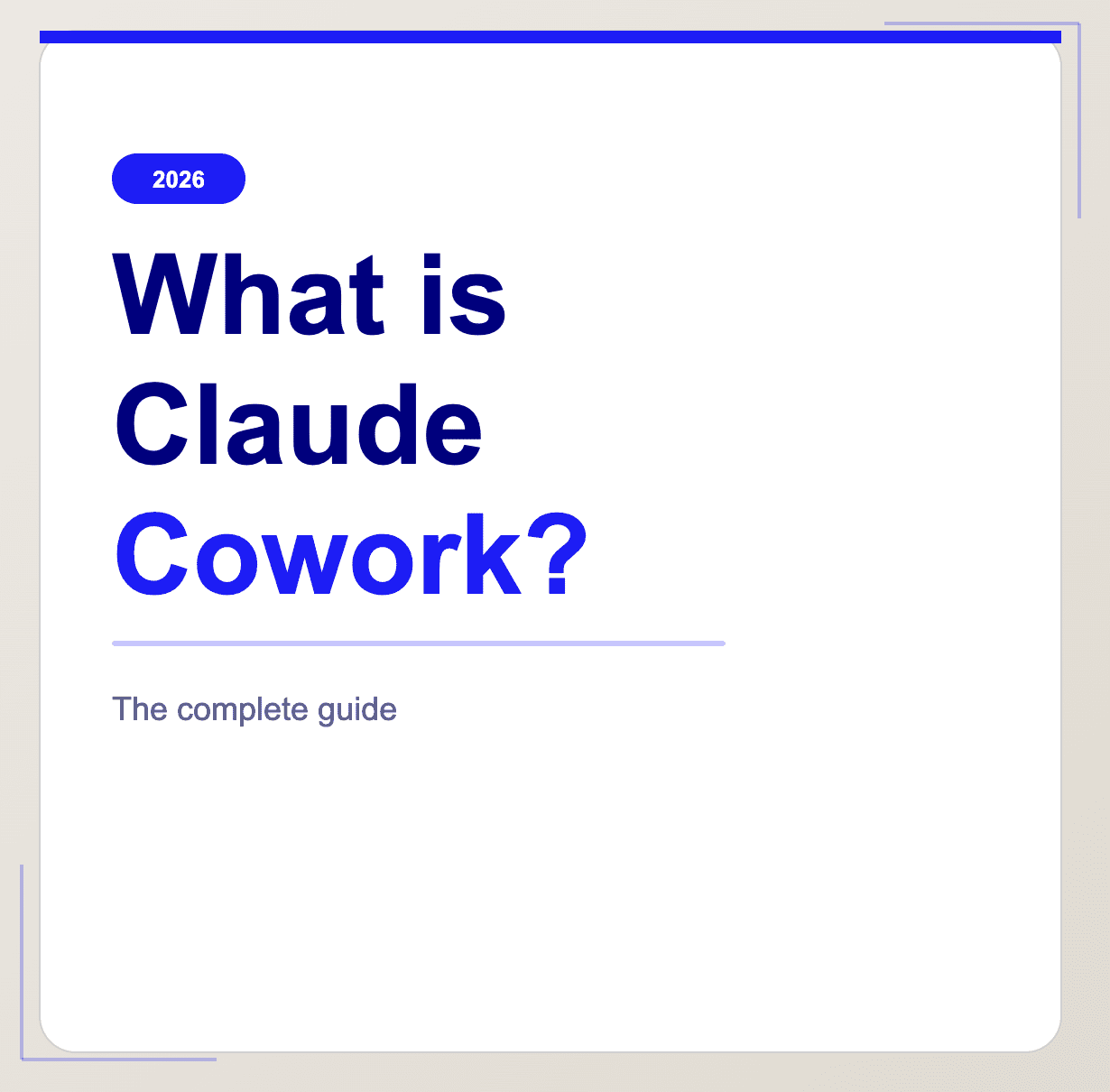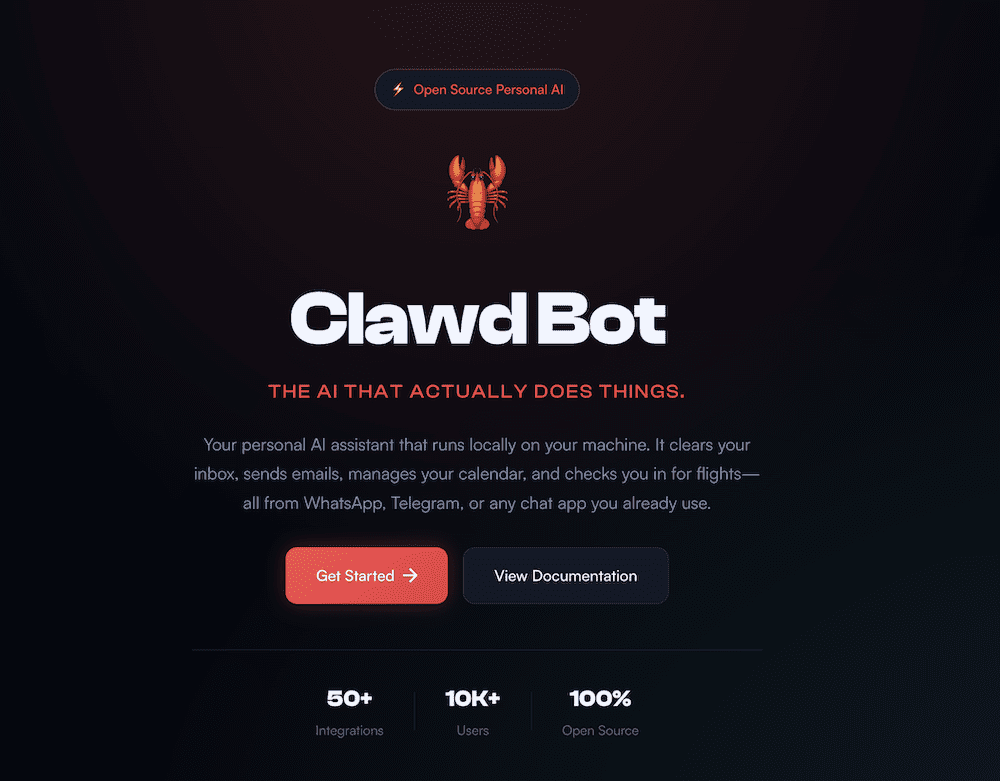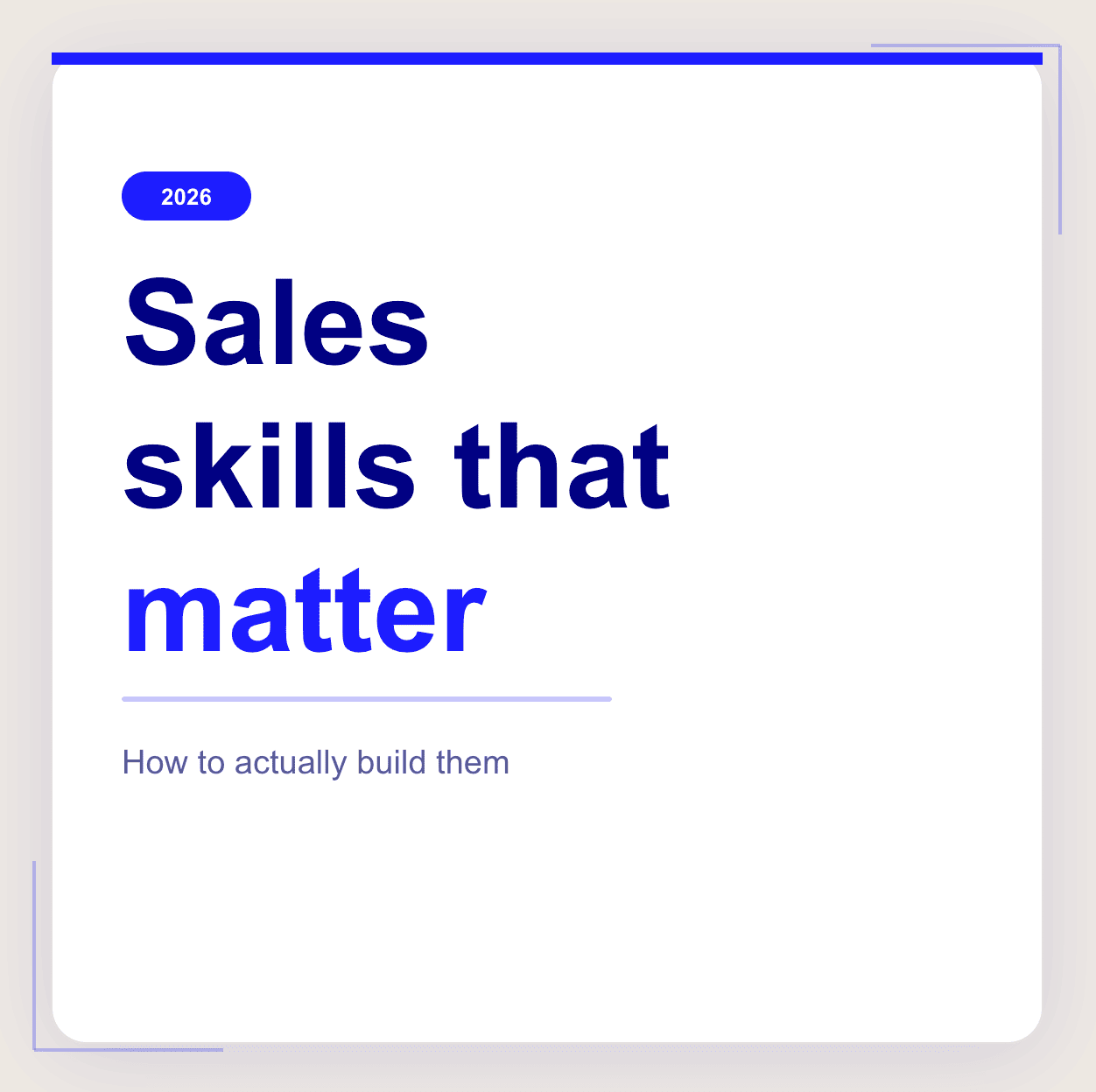Shortening the sales cycle is every rep and sales manager’s dream. You can be more efficient in reducing time spent on each deal (hello, higher ROI) and potentially win more deals.
AI meeting summaries can help sales teams move faster, improve communication, and eliminate friction. Whether streamlining follow-ups, keeping deals warm, or ensuring decision-makers stay aligned, AI-driven insights from video calls can significantly reduce the time it takes to close.
By providing instant, structured recaps, this sales tool enables faster follow-ups, reduces miscommunication, and makes it easier for internal champions to share key takeaways. It also saves reps time on admin tasks, improves buyer engagement, and enhances deal reviews.
With AI-driven summaries from tl;dv, sales teams can speed up decision-making and close deals faster, all without the manual workload. Ready to shorten your sales cycle?
AI Insights Enable Faster Follow-Ups To Shorten The Sales Cycle
Timely follow-ups are crucial in sales. According to the Zeigarnik Effect, people remember unfinished tasks better than completed ones, meaning that if a follow-up isn’t immediate, prospects may deprioritize the deal. Delays weaken urgency, and without reinforcement, prospects may forget key details or even lose interest entirely.
Now, imagine the same scenario with an AI-generated meeting summary. Right after the call, the rep receives a structured recap highlighting key points, objections, and next steps. Instead of sorting through notes, they can send a personalized follow-up in minutes, reinforcing the conversation while it is still fresh.
Unlike generic transcription tools, tl;dv doesn’t just summarize, it analyzes conversations, detects key themes, and integrates insights directly into sales workflows, eliminating guesswork and redundant meetings. Features like speaker identification, automated CRM integration, and multi-meeting summaries ensure every stakeholder gets the most relevant insights without information overload.
For example, without AI, a sales rep might write:
“Great speaking with you. Let me know if you have any questions.”
With AI, they could say:
“Great speaking with you. As mentioned, you are considering Plan B due to budget constraints. Here is a breakdown of the cost savings we discussed, along with a case study relevant to your industry. Let me know if you would like to include your CFO in the next meeting.”
AI meeting summaries help sales teams keep deals moving by reducing delays and improving communication.
Table of Contents
AI Insights Can Keep Deals Fresh in Buyer’s Minds
Buyers are often juggling multiple priorities, meetings, and competing vendors. Without an AI meeting summary, a sales call can quickly fade from memory. According to the Ebbinghaus Forgetting Curve , people forget nearly 50% of new information within an hour and up to 70% within a day without reinforcement.
For example, a prospect might remember they had a good conversation but forget the details that made the solution compelling. If too much time passes, they may lose interest, focus on another provider, or require another meeting to revisit the discussion, slowing the process.
Now, consider the same situation with an AI-generated summary. After the call, the prospect receives a clear, structured recap outlining key pain points, suggested solutions, pricing details, and next steps. Instead of relying on memory, they have an easy reference to refresh their understanding.
Without AI, a prospect might tell a colleague:
“I spoke with them last week. It sounded good, but I need to check my notes before we decide.”
With AI, they could say:
“I received a meeting summary with everything we discussed. The proposal fits our needs, and the pricing breakdown makes sense. Let’s review it and move forward.”
AI meeting summaries help buyers stay engaged, reducing the risk of deals stalling due to forgotten details or the need for repeated conversations.
AI Insights Can Help You To Share Information Internally Easily
Many deals stall because internal champions struggle to communicate key details to decision-makers.
Without an AI meeting summary, they rely on handwritten notes, memory, or fragmented emails to explain why the solution is a good fit.
This often leads to missing information, confusion, and additional meetings, slowing down the approval process.

From the buyer’s perspective, this can be frustrating. A prospect who sees the value in a product may not have the time or confidence to summarize it effectively to their manager, finance team, or legal department. If they can’t make a strong case, the deal risks getting deprioritized or requiring another call for clarification.
From the seller’s perspective, this creates bottlenecks that drag out the sales cycle. Reps often have to answer the same questions multiple times, craft lengthy follow-ups, or set up new calls with stakeholders who were not on the original meeting. This slows momentum and increases the risk of losing the deal to a competitor who communicates more efficiently.
Now, imagine the same situation with an AI-generated meeting summary. Instead of struggling to recall details, the prospect can forward a structured summary covering key takeaways, objections discussed, pricing, and next steps.
For example, without AI, a champion might say:
“I had a call with the vendor. I think their solution could work, but I need to check some details before looping in finance.”
With AI, they could say:
“I received a summary of our discussion with the vendor. It includes the benefits, pricing, and implementation details. I’m sharing it with finance so we can make a decision.”
From the seller’s side, this removes the need for redundant communication. Instead of waiting days for updates, the sales rep can track engagement, knowing when summaries are shared and reviewed. This allows them to step in with the right support at the right time, rather than chasing prospects for updates.
For example, without AI, the seller might get an email saying:
“My manager has some questions. Can we set up another call?”
With AI, they might hear:
“I shared your meeting summary with my manager. They’re aligned, and we’re ready to move forward.”
By reducing miscommunication, preventing unnecessary follow-ups, and ensuring all decision-makers have the right information, AI meeting summaries help both buyers and sellers keep deals moving faster and more smoothly.
AI Insights Can Save Sales Reps Time on Admin Work
Sales reps thrive on selling, not paperwork. However, more often than not a significant portion of their time is spent on administrative tasks like note-taking, logging CRM updates, and crafting follow-up emails. Without an AI meeting summary, a rep may spend 30 to 60 minutes after each call reviewing notes, recalling key details, and manually updating their system. Multiply that by multiple calls a day, and hours are lost each week on admin work instead of active selling.
With AI-generated meeting summaries, instead of spending valuable time sorting through call recordings or scribbled notes, the rep receives an instant, structured summary capturing key discussion points, action items, and next steps. This summary can be automatically logged into the CRM, making updates effortless.
For example, without AI, a rep might spend 40 minutes after a call:
- Writing notes from memory
- Manually updating the CRM
- Drafting a follow-up email
With AI, the process looks different:
- The AI-generated summary auto-logs key points into the CRM
- The rep reviews and refines the summary in minutes
- The follow-up email is sent instantly, keeping momentum high
By reducing admin work, AI meeting summaries give sales reps more time to focus on closing deals. A more efficient sales process means reps can handle more opportunities in less time, leading to increased conversion rates and a higher return on investment (ROI). Instead of getting bogged down in repetitive administrative tasks, sales teams can prioritize high-value activities—nurturing leads, refining their pitch, and accelerating revenue growth.
AI Insights Can Help Align Internal Teams
We’ve already touched on how poor communication can impact a sales team working on a deal, but its effects go far beyond that.
A disconnected sales process often leads to miscommunication between teams. Sales, marketing, and customer success all play a role in closing and retaining deals, but key details get lost without a clear record of customer interactions. Without an AI meeting summary, teams rely on scattered notes, word-of-mouth updates, or incomplete CRM entries, resulting in inconsistent messaging, repeated questions for prospects, and missed opportunities.
This is frustrating for sellers. A rep may close a deal only to find that customer success is unaware of onboarding requirements or that marketing never gained insights into what influenced the sale. These gaps slow growth and create extra work across teams.
Imagine the same scenario with an AI-generated meeting summary being part and parcel of overall process, both on internal discussions and with the customer as well.
After a sales call, the summary is automatically shared with the CRM, giving marketing insight into the prospect’s pain points, ensuring customer success understands expectations, and providing leadership with clear visibility into deal progress.
For example, without AI, a customer success manager might ask:
“What were the client’s main concerns during the sales process?”
With AI, they already know:
“I saw in the meeting summary that onboarding speed was their top concern. We’ll make that a priority.”
AI meeting summaries keep teams aligned, improving handoffs and ensuring a seamless customer experience.
AI Insights Can Also Improve Buyer Engagement In-Between Calls
A common challenge in sales is keeping buyers engaged between meetings. Without regular touchpoints, prospects can lose interest, get distracted by other priorities, or forget key details from previous conversations. Without an AI meeting summary, sales reps often rely on generic follow-ups or long emails that may not get read, leaving the deal at risk of stalling.
From the buyer’s perspective, this can be frustrating. They may remember that the conversation was promising but struggle to recall specifics. If they need to chase the sales rep for clarification or dig through their own notes, the process becomes more difficult, which may delay their decision.
From the sales rep’s perspective, this lack of engagement can cause deals to drag out unnecessarily. Without a clear way to remind prospects of past discussions, reps often spend time rescheduling calls, clarifying details, and trying to reignite interest. They may also struggle to personalize their outreach, relying on broad templates instead of meaningful, targeted follow-ups.
Now, imagine the same situation with an AI-generated meeting summary. Instead of sending a vague follow-up, the sales rep can provide a structured recap that highlights key points, objections discussed, and next steps. This allows them to:
- Send highly relevant follow-ups – Instead of a generic check-in, reps can refer back to specific challenges and goals the buyer mentioned.
- Share tailored content – AI summaries can highlight discussion points, helping reps send the right case studies, whitepapers, or product comparisons.
- Keep deals warm without extra effort – Automated summaries ensure the prospect stays informed, reducing the need for repeated calls.
- Make it easy for buyers to take action – AI-generated notes outline clear next steps, so there’s no confusion about what needs to happen.
For example, without AI, a buyer might say:
“I need to revisit what we talked about before making a decision.”
With AI, they might say:
“I just reviewed the meeting summary. Everything is clear—let’s move to the next step.”
From the rep’s side, this reduces time spent chasing prospects and increases the likelihood of deals progressing smoothly. AI meeting summaries help maintain momentum, ensuring that conversations remain top of mind for both parties.
AI Insights Can Help Identify Buying Signals Faster
Recognizing buying signals early allows sales reps to focus on high-priority deals instead of chasing leads that are unlikely to convert. Without an AI meeting summary, reps must rely on memory and often an array of notes to try and recall when a prospect expressed real interest. This can lead to missed opportunities, wasted time, and deals slipping through the cracks.
From the buyer’s perspective, they may have subtly signaled intent—mentioning budget approval, a need for urgency, or specific features they liked, but if the sales rep doesn’t pick up on it, the momentum can slow. Without clear tracking, the rep might delay follow-ups or fail to emphasize the right points in the next conversation.

From the sales rep’s perspective, AI meeting summaries highlight key phrases and moments that indicate purchase intent. Instead of relying on memory, they get an objective recap of when a buyer:
- Asked about pricing – When a prospect starts asking detailed pricing questions, it often signals they are seriously considering the product. AI meeting summaries flag these discussions, ensuring sales reps follow up with relevant pricing breakdowns, cost comparisons, or potential discounts.
- Wanted a demo for their team – If a buyer requests a demonstration for other stakeholders, this is a sign they are trying to build internal support. AI-generated summaries capture this moment, prompting the rep to offer a tailored group demo or provide additional materials to help sell the solution internally.
- Mentioned a competing solution – Buyers often evaluate multiple options before making a decision. If AI notes that a prospect has referenced a competitor, sales reps can craft a follow-up that highlights competitive advantages, customer success stories, or specific features that differentiate their product.
- Needed the product before a certain deadline – Timing can be a decisive factor in closing deals. If a prospect mentions they need a solution before the next quarter, AI summaries ensure that the rep prioritizes this lead and creates a sense of urgency by streamlining approval steps and addressing objections quickly.
For example, without AI, a rep might overlook a prospect saying:
“We need a solution before next quarter, but we have to check with finance.”
With AI, they can prioritize that lead, following up with:
“Since you need a solution before next quarter, I’ve put together a pricing breakdown for finance to review.”
AI meeting summaries help sales reps act quickly on buying signals, shortening the sales cycle and increasing close rates.
AI Insights Can Help Prevent Misinformation & Miscommunication
Miscommunication is one of the biggest risks in sales, leading to delays, confusion, and lost deals. Without a clear, objective record of what was discussed, sales reps and buyers may remember conversations differently, creating frustration on both sides. Psychological studies on memory recall, such as the “misinformation effect” studied by Elizabeth Loftus, show that human memory is highly malleable. People often misremember details, especially after multiple conversations.
Without AI meeting summaries, buyers may recall pricing, features, or implementation details inaccurately, causing unnecessary objections or hesitation. Sales reps, juggling multiple deals, may also forget key details, leading to inconsistent follow-ups. This back-and-forth can slow down the sales cycle and erode trust.
Now, the same situation with AI-generated meeting summaries is more efficient and accurate. AI captures the exact conversation, eliminating gaps in recall. Instead of relying on subjective memory, both the rep and the buyer have a single source of truth they can refer back to.
From the buyer’s perspective, this prevents:
- Misremembering details – AI summaries ensure they have a reference for what was promised.
- Internal confusion – Prospects can share a clear, structured summary with their team, reducing the risk of misinformation spreading.
- Second-guessing the offer – When details are clear, buyers feel more confident in moving forward.
From the sales rep’s perspective, this helps:
- Maintain consistency – Every touchpoint aligns with the original conversation.
- Avoid unnecessary objections – Buyers won’t push back on perceived inconsistencies.
- Strengthen trust – A clear, objective summary reinforces transparency.
For example, without AI, a buyer might say:
“I thought you said implementation takes two weeks?”
With AI, the rep can respond:
“According to our meeting summary, we discussed a four-week timeline. Let’s review it together.”
AI meeting summaries ensure clarity, reduce confusion, and keep deals on track.
AI Insights Can Enhance Development and Sales Coaching
AI meeting summaries are a valuable resource for improving sales training, coaching, and ongoing development. Whether onboarding new reps, refining strategies for experienced sellers, or giving managers better insight into their team’s performance, AI-generated insights create a structured, objective foundation for learning and improvement.
Sales coaching often relies on reps recalling their own experiences, but memory is flawed and subject to bias. A study by psychologist Daniel Kahneman highlights that people tend to overestimate their performance in high-pressure situations. Without AI-generated summaries, managers must either sit through hours of call recordings or rely on reps’ self-reports, which may not capture key nuances of the conversation. This makes coaching less effective and inconsistent.
For New Sales Reps:
- Ramp up faster by studying real conversations, common objections, and best practices. Instead of shadowing multiple calls, they can review summaries of high-quality interactions.
- Learn from top performers by analyzing how experienced reps handle objections, pricing discussions, and negotiations. AI can surface the best examples of effective sales techniques.
- Get instant feedback by comparing their summaries against successful deals, helping them spot gaps in their approach.
- Reduce anxiety in early calls by having a structured summary of key points to guide their follow-ups, ensuring they don’t miss important details.
For Experienced Sales Reps:
- Refine their approach by reviewing past meetings to identify which messaging resonates most with buyers.
- Improve objection handling by recognizing recurring concerns from prospects and proactively addressing them.
- Eliminate bad habits by catching repetitive mistakes, such as weak closing strategies or unclear value propositions.
- Strengthen deal strategy by spotting trends across multiple meetings, ensuring they prioritize the right opportunities.
For Sales Managers:
- Coach at scale by reviewing multiple reps’ meetings without manually listening to each one. AI summarizes key interactions, making coaching sessions more efficient.
- Ensure consistency in how the team presents the product, pitches pricing, and handles objections. AI allows managers to compare performance across reps.
- Track improvement over time by monitoring AI-generated insights, making it easier to see if coaching efforts are leading to better results.
- Spot high-potential reps early by identifying those who consistently handle calls well, allowing managers to nurture future sales leaders.
Identify weak points across the team by looking at AI trends that highlight common struggles, such as closing techniques or competitor objections.
AI meeting summaries transform sales coaching into a continuous, structured learning process, helping new reps ramp up faster, experienced reps sharpen their skills, and managers gain deeper visibility into team performance.
AI Insights Can Help to Speed Up Deal Reviews & Forecasting
Accurate forecasting and deal reviews are critical for sales teams, but they often rely on manual input and subjective interpretations. Without AI meeting summaries, sales managers must chase reps for updates, sift through CRM entries, and piece together information from various sources. This makes deal tracking inconsistent and forecasting unreliable, leading to missed targets or inaccurate pipeline predictions.
How This Affects Sales Teams Without AI:
- Delays in deal reviews – Managers spend too much time gathering updates from reps instead of focusing on strategy.
- Inconsistent reporting – Sales reps may forget key details or provide subjective updates, making it hard to assess true deal progress.
- Missed risks and opportunities – Without structured insights, early warning signs of a stalled deal or strong buying signals can be overlooked.
With AI-generated meeting summaries, deal tracking becomes faster, more objective, and more accurate. Every sales conversation is automatically summarized, with key moments highlighted and linked directly to CRM records.
How AI Improves Deal Reviews & Forecasting:
- Real-time visibility – Managers can quickly scan AI-generated summaries instead of waiting for end-of-week updates, reducing delays in pipeline reviews.
- Standardized deal tracking – Every sales meeting is recorded in a structured format, ensuring consistency across the team.
- Faster identification of at-risk deals – AI highlights objections, stalled conversations, or unclear next steps so managers can step in proactively.
- Improved forecasting accuracy – AI-driven insights provide data-backed predictions rather than relying on rep optimism or gut feelings.
For example, without AI, a sales manager might say:
“This deal looked promising last week, but I haven’t had an update.”
With AI, they could say:
“The last meeting summary flagged pricing concerns. Let’s adjust our proposal before the next call.”
By reducing guesswork, AI-powered meeting summaries help sales teams close deals faster and forecast with confidence.
Shortening The Sales Cycle Improves Customer Experience
For buyers, a long sales cycle can be frustrating and mentally draining.
Every additional meeting, follow-up email, or delayed response adds to decision fatigue, making the process more overwhelming. By streamlining the journey, buyers experience less cognitive overload and feel more in control, allowing them to make quicker, more confident purchasing decisions. This reduces second-guessing and creates a more positive buying experience, increasing the likelihood of a successful deal.
When deals drag on, buyers are forced to revisit old conversations, dig through scattered notes, and sit through repeated meetings just to clarify details they’ve already discussed. This slows momentum, increases decision fatigue, and often leads to hesitation—or worse, the deal falling through entirely.
AI meeting summaries remove these roadblocks by ensuring buyers have a clear, structured record of every conversation. Instead of relying on memory or struggling to communicate key points to stakeholders, they can refer to a concise, accurate summary that outlines pain points, proposed solutions, pricing, and next steps. This means fewer unnecessary meetings, faster internal approvals, and a more efficient decision-making process.
Beyond just making things easier, this streamlined approach builds trust. When buyers have an objective record of discussions, there’s no room for miscommunication, forgotten details, or last-minute surprises. They feel more in control, knowing that expectations are clearly documented and aligned. Instead of chasing sales reps for clarification, they can confidently move forward, knowing they have everything they need at their fingertips.
Momentum is everything. When buyers stay engaged and confident, deals close faster—not because they’re rushed, but because the process is frictionless, transparent, and easy to navigate.
How to Implement AI Meeting Summaries to Shorten Your Sales Cycle
1. Choose the right AI tool.
Not all AI meeting summaries are designed for sales teams. Look for one that integrates with your CRM, provides real-time transcription, and highlights key insights like objections, action items, and follow-ups. A tool that streamlines your workflow will make it easier to reduce deal friction and keep momentum high. To see if tl;dv might benefit you check out our integrations and our key features.
2. Train your team to use AI effectively.
Even the best AI tool won’t work if reps don’t use it. Ensure they understand how to review summaries, refine follow-ups, and incorporate AI insights into their outreach. Show them how it reduces admin work and shortens the sales cycle, making their jobs easier and more productive.
3. Measure the impact.
Track key metrics like deal closure time, follow-up response rates, and conversion improvements. Compare sales performance before and after AI implementation to see how much time is saved and whether deals are closing faster. A shorter sales cycle should directly lead to increased efficiency and higher revenue.
4. Optimize and scale.
AI tools improve over time, but only when actively used. Review AI-generated insights regularly, identify common objections, and adjust sales strategies accordingly. Expand usage beyond initial meetings to include renewals, upsells, and cross-team collaboration for even greater efficiency.
Are You Ready To Shorten The Sales Cycle?
Sales teams thrive when they can move quickly, communicate clearly, and eliminate unnecessary delays. AI meeting summaries help streamline the entire sales process by enabling faster follow-ups, keeping deals fresh in buyers’ minds, improving internal alignment, and reducing the time reps spend on admin tasks. They also help sales managers track deal progress more accurately, making forecasting and pipeline reviews more reliable.
With AI-powered insights, sales teams can spot buying signals faster, prevent miscommunication, and ensure that every decision-maker has access to key details without repeated calls or emails. This allows sellers to spend more time closing deals and less time chasing lost conversations.
By integrating tl;dv into your sales workflow, you create a more structured, predictable sales process that gives sales teams greater control over deal progression. Instead of navigating fragmented conversations and inconsistent follow-ups, sales reps can rely on AI-generated insights to guide prospects smoothly through the buyer journey. A well-structured process eliminates guesswork, ensuring that each interaction moves the deal forward efficiently. For buyers, this means a hassle-free experience where they receive timely, relevant information without unnecessary delays. The result? More closed deals, happier customers, and a faster path to revenue growth.





